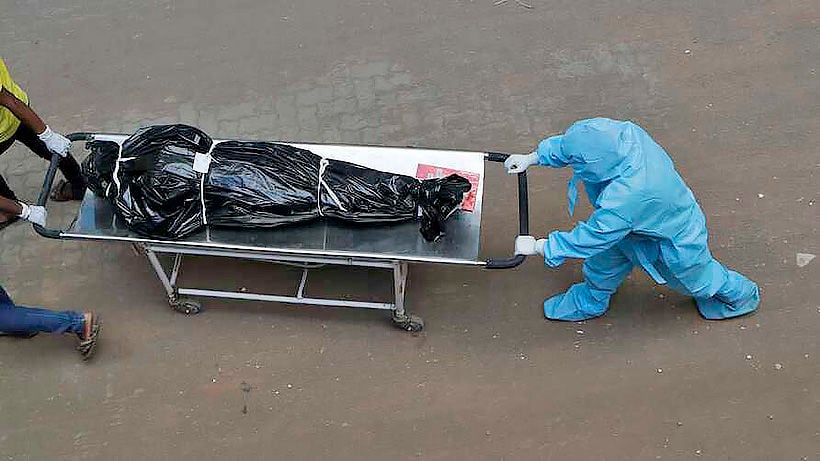Global Covid-19 infections soar past 25 million

Covid-19 infections around the world surpassed 25 million today, with India setting a grim new record for the highest single-day rise in cases, 78,761. Roughly a million new cases have been detected globally every 4 days since mid-July, according to an AFP tally. The surge in India, a country of 1.3 billion people, comes as the government further eased lockdown restrictions on the weekend to ease pressure on the sagging economy. Even countries like New Zealand and South Korea, which had brought their outbreaks largely under control, are now battling new clusters of infection.
In Latin America, the hardest-hit region, coronavirus deaths in Brazil crossing 120,000, second only to the US. A researcher at public health institute Fiocruz said:
“Brazil’s curve has stabilised now, but at a very dangerous level: nearly 1,000 deaths and 40,000 cases per day. And Brazil still isn’t past the peak.”
Nearly 847,000 people have died of Covid-19 globally, and no vaccine or effective treatment is available yet; governments have been forced to resort to some form of social distancing and lockdowns to fight the spread of the virus.
In New Zealand, which went more than 100 days without local transmission before the current cluster emerged, masks will become mandatory tomorrow on public transport and flights. Tightened virus curbs kicked in on today in South Korea, which is also battling fresh clusters, including in the greater Seoul region, home to half the nation’s population.
Despite the horrifying numbers, there has been steady opposition to lockdowns and social distancing in many countries, often because of their crushing economic cost. Resistance has come from the extreme right and left of the political spectrum, as well as from conspiracy theorists and anti-vaccine campaigners.
In Berlin on yesterday, around 18,000 people gathered to march against coronavirus restrictions, but police stopped the rally because many were not respecting social distancing measures.
Protesters waved German flags and shouted slogans against Chancellor Angela Merkel often used by the far-right Alternative for Germany party.
Some carried signs promoting widely debunked conspiracy theories about vaccines, facemasks and 5G communications. Similar protests were held in London and Zurich, where people carried signs supporting the far-right QAnon movement, which promotes, with no credible evidence, bizarre theories about Satan-worshipping cabals and “deep state” plots.
The pandemic has upended economies and societies around the world, and halted most large gatherings, from sport and music to religion and politics. The world’s top sport, culture and music events are struggling with the challenge of hosting spectators while reducing the risk of virus transmission, including even the Olympic Games in Japan, which have been postponed for a year.
But there was some good news yesterday in New York, once among the world’s biggest coronavirus hotspots: visitors raised their arms, clapped and lined up to get tickets as New York’s Metropolitan Museum of Art reopened its doors after a 6 month closure.
“It means that there is some semblance of normalcy. The Met has been a part of New York history for over 150 years… So this is a big first step.”
SOURCES: Bangkok Post | AFP
Latest Thailand News
Follow The Thaiger on Google News:


























